Blogged by Brad Friedman from Phoenix, AZ...
 While Florida's new Republican Governor Charlie Crist deserves credit, perhaps even a rarely-bestowed BRAD BLOG "Intellectually Honest Conservative" Award --- for his recent announcement alongside Rep. Robert Wexler (D-FL) that he would propose some $32 million to replace the Sunshine State's failed touch-screen voting machines with paper-based optical scan systems, it seems that the old state guard is still lying and covering up for their failed e-voting systems which undermined democracy last November.
While Florida's new Republican Governor Charlie Crist deserves credit, perhaps even a rarely-bestowed BRAD BLOG "Intellectually Honest Conservative" Award --- for his recent announcement alongside Rep. Robert Wexler (D-FL) that he would propose some $32 million to replace the Sunshine State's failed touch-screen voting machines with paper-based optical scan systems, it seems that the old state guard is still lying and covering up for their failed e-voting systems which undermined democracy last November.
An article on the Crist/Wexler initiative from last Friday's New York Times offered this refreshing quote from the Florida Republican on concerns about the cost of tossing the state's recently purchased touch-screen systems: "The price of freedom is not cheap. The importance of a democratic system of voting that we can trust, that we can have confidence in, is incredibly important."
To that, we say, right on. But apparently the folks in Crist's Department of State (DOS) have yet to get the memo that it's time to stop covering up the massive electoral system failures in Florida.
In a blog item today by Princeton University's computer science Professor Ed Felten, he reveals that the state's "independent audit" of the contested 13th Congressional District election between Democrat Christine Jennings and Republican Vern Buchanan --- in which some 18,000 votes disappeared on Sarasota County's paperless touch-screen machines in a race decided by just 369 votes --- is built on more lies than previously realized.
 The Princeton University professor who led the team that revealed Diebold touch-screen systems could be hacked in less than 60 seconds and implanted with a vote-stealing virus which could undetectedly flip an entire election has exposed yet another lie from the state-convened team of scientists supposedly investigating the FL-13 incident.
The Princeton University professor who led the team that revealed Diebold touch-screen systems could be hacked in less than 60 seconds and implanted with a vote-stealing virus which could undetectedly flip an entire election has exposed yet another lie from the state-convened team of scientists supposedly investigating the FL-13 incident.
The audit team, convened by state officials at the FL Department of State, has been appropriately criticized for its partisan make-up, lack of transparency, and apparent conflicts of interest in demonstrating that they were not to blame for having certified the very voting systems they have charged themselves with "investigating."
Felten, however, has revealed the case is even worse than that. Apparently they have lied about who is actually on the team, listing Felten in official documents as one of the team members despite his early refusal to take part in the state-run investigation...
According to a report [PDF] on the DOS website, Felten is listed as one of "the initial team of the principal investigators":
Alec Yasinsac, Associate Professor, Computer Science Department, Florida State University
Mike Burmester, Professor, Computer Science Department, Florida State University
Breno de Medeiros, Assistant Professor, Computer Science Department, Florida State University
Ed Felten, Professor, Computer Science Department, Princeton University
Michael Shamos, Professor Computer Science Department, Carnegie-Mellon University
David Wagner, Associate Professor, Computer Science Division, University of California-Berkley
Matt Bishop, Associate Professor, Department of Computer Science, University of California-Davis
...And yet, in his blog item today, critical for the most part of the state-run audit, Felten directly contradicts the published DOS report:
The biggest limitation on the study is that DOS is withholding information and resources needed for a complete study. Most notably, they are not providing access to voting machines. You don’t have to be a rocket scientist to realize that if you want to understand the behavior of voting machines, it helps to have a voting machine to examine. DOS could have provided or facilitated access to a machine, but it apparently chose not to do so.
So the state is relying on an investigation which does not have access to the actual voting machines they are supposed to be investigating and has lied about who is actually participating in the investigation. As we're on the road, we're unable to follow up with the other listed team members to find out if they are actually working on the team, but we'd welcome anyone who wishes to follow up to report back to us, or fill out that detail in comments below.
One other point from Felten's blog is worth noting here. Colleagues of the Republican partisan Prof. Alec Yasinsac have previously defended the state's choice of naming him to lead the "investigative" team, claiming that although he might be partisan --- he was famously seen on the Florida Supreme Court stairs in 2000, proudly sporting a "BUSH WON" button --- he'd never sacrifice his scientific ethics in favor of a fellow Republican candidate.
According to Felten today:
As we've pointed out previously in response to similar Yasinsac defenders, such as Livermore National Labratories' David Jefferson and Johns-Hopkins' Avi Rubin, the scientists here, including Felten, whom we respect for their computer/security skills, seem to be somewhat politically naive.
What they don't acknowledge in their defense of Yasinsac is that even the appearance of conflict of interest potentially compromises the integrity of any report on FL-13 as released by the state.
If, as the scientists aver, Yasinsac will assiduously report any problems discovered in the hardware or software of the systems he is supposedly analyzing, that's great. If, however, the state fails to find any problems in the system, as they have so far indicated, the report itself will be seen as compromised. Thus, concerns about what happened in FL-13 won't go away.
Yasinsac may indeed be a very fine fellow. We'll take the word of Jefferson, Rubin and Felten on that. But this investigation is not about Yasinsac's credibility, it is about finding out what happened to the ballots of 18,000 voters in Florida who seem to have been effectively disenfranchised, and the many more thousands who may have had democracy and legitimate representative government taken from them.
Those voters deserve credible answers about what went on during that election. Partisan investigators with documented conflicts of interest are unlikely to provide the definitive peace of mind that Sarasota voters deserve.
But this is the Banana Republic of Florida after all. So it may take quite awhile --- even for someone with the apparent intellectual honesty of their new governor --- to wind back the clock on the systemic corruption of the democracy-haters in the Sunshine State who have undermined the most basic American value, the right to vote and to have one's vote counted and counted accurately, during the unholy reign of the former governor Jeb Bush.


 Kamala Rising:
Kamala Rising: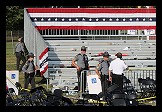 Evidence Fails to Establish Attempted Trump Assass-ination Politically Motivated
Evidence Fails to Establish Attempted Trump Assass-ination Politically Motivated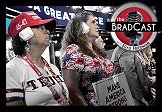 Former MAGA 'Cultist' on the State of the Race for 'MAGA Americans': 'BradCast' 7/23/24
Former MAGA 'Cultist' on the State of the Race for 'MAGA Americans': 'BradCast' 7/23/24  'Green News Report' 7/23/24
'Green News Report' 7/23/24
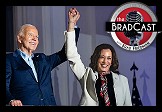 Biden Out, Endorses
Biden Out, Endorses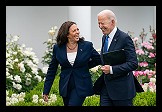 BIDEN DROPS REELECTION BID
BIDEN DROPS REELECTION BID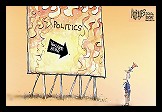 Sunday 'You Are Here' Toons
Sunday 'You Are Here' Toons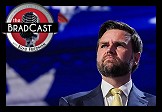 What J.D. Vance Forgot to Tell You (and Lied About) at the RNC: 'BradCast' 7/18/24
What J.D. Vance Forgot to Tell You (and Lied About) at the RNC: 'BradCast' 7/18/24 'Green News Report' 7/18/24
'Green News Report' 7/18/24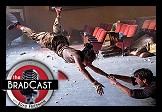 Holding on for Dear Life Amid the Political Whirlwind: 'BradCast' 7/17/24
Holding on for Dear Life Amid the Political Whirlwind: 'BradCast' 7/17/24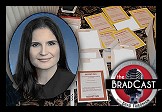 Cannon's Corruption: 'BradCast' 7/16/24
Cannon's Corruption: 'BradCast' 7/16/24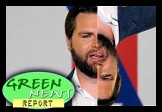 'Green News Report' 7/16/24
'Green News Report' 7/16/24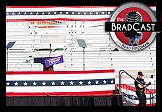 Amid the Assassination Attempt Aftermath:
Amid the Assassination Attempt Aftermath: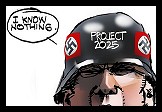
 Meanwhile... : 'BradCast' 7/11/24
Meanwhile... : 'BradCast' 7/11/24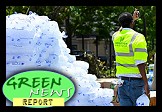 'Green News Report' 7/11/24
'Green News Report' 7/11/24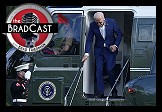 Paging 'Johnny Unbeatable'! Dems (Actually!) in Disarray!: 'BradCast' 7/10/24
Paging 'Johnny Unbeatable'! Dems (Actually!) in Disarray!: 'BradCast' 7/10/24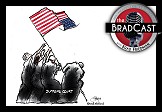 SCOTUS Immunity Ruling 'As Bad as it Sounds', And Worse: 'BradCast' 7/9/24
SCOTUS Immunity Ruling 'As Bad as it Sounds', And Worse: 'BradCast' 7/9/24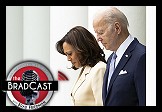 So, What Now?: 'BradCast' 7/8/24
So, What Now?: 'BradCast' 7/8/24 Debunking MAGA Cult Xenophobia
Debunking MAGA Cult Xenophobia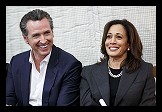 A Friendly Suggestion: Harris-Newsom 2024
A Friendly Suggestion: Harris-Newsom 2024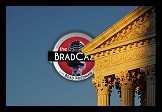 Prosecutor: SCOTUS Corruption Ruling Less Corrupt Than Appears: 'BradCast' 6/27/24
Prosecutor: SCOTUS Corruption Ruling Less Corrupt Than Appears: 'BradCast' 6/27/24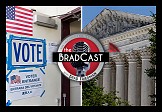 Good News and Bad: At the Polls and From the Corrupted Court: 'BradCast' 6/26/24
Good News and Bad: At the Polls and From the Corrupted Court: 'BradCast' 6/26/24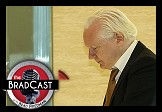 'Emptywheel' on Assange Hacking, Plea Deal: 'BradCast' 6/25/24
'Emptywheel' on Assange Hacking, Plea Deal: 'BradCast' 6/25/24
 VA GOP VOTER REG FRAUDSTER OFF HOOK
VA GOP VOTER REG FRAUDSTER OFF HOOK Criminal GOP Voter Registration Fraud Probe Expanding in VA
Criminal GOP Voter Registration Fraud Probe Expanding in VA DOJ PROBE SOUGHT AFTER VA ARREST
DOJ PROBE SOUGHT AFTER VA ARREST Arrest in VA: GOP Voter Reg Scandal Widens
Arrest in VA: GOP Voter Reg Scandal Widens ALL TOGETHER: ROVE, SPROUL, KOCHS, RNC
ALL TOGETHER: ROVE, SPROUL, KOCHS, RNC LATimes: RNC's 'Fired' Sproul Working for Repubs in 'as Many as 30 States'
LATimes: RNC's 'Fired' Sproul Working for Repubs in 'as Many as 30 States' 'Fired' Sproul Group 'Cloned', Still Working for Republicans in At Least 10 States
'Fired' Sproul Group 'Cloned', Still Working for Republicans in At Least 10 States FINALLY: FOX ON GOP REG FRAUD SCANDAL
FINALLY: FOX ON GOP REG FRAUD SCANDAL COLORADO FOLLOWS FLORIDA WITH GOP CRIMINAL INVESTIGATION
COLORADO FOLLOWS FLORIDA WITH GOP CRIMINAL INVESTIGATION CRIMINAL PROBE LAUNCHED INTO GOP VOTER REGISTRATION FRAUD SCANDAL IN FL
CRIMINAL PROBE LAUNCHED INTO GOP VOTER REGISTRATION FRAUD SCANDAL IN FL Brad Breaks PA Photo ID & GOP Registration Fraud Scandal News on Hartmann TV
Brad Breaks PA Photo ID & GOP Registration Fraud Scandal News on Hartmann TV  CAUGHT ON TAPE: COORDINATED NATIONWIDE GOP VOTER REG SCAM
CAUGHT ON TAPE: COORDINATED NATIONWIDE GOP VOTER REG SCAM CRIMINAL ELECTION FRAUD COMPLAINT FILED AGAINST GOP 'FRAUD' FIRM
CRIMINAL ELECTION FRAUD COMPLAINT FILED AGAINST GOP 'FRAUD' FIRM RICK SCOTT GETS ROLLED IN GOP REGISTRATION FRAUD SCANDAL
RICK SCOTT GETS ROLLED IN GOP REGISTRATION FRAUD SCANDAL VIDEO: Brad Breaks GOP Reg Fraud Scandal on Hartmann TV
VIDEO: Brad Breaks GOP Reg Fraud Scandal on Hartmann TV RNC FIRES NATIONAL VOTER REGISTRATION FIRM FOR FRAUD
RNC FIRES NATIONAL VOTER REGISTRATION FIRM FOR FRAUD EXCLUSIVE: Intvw w/ FL Official Who First Discovered GOP Reg Fraud
EXCLUSIVE: Intvw w/ FL Official Who First Discovered GOP Reg Fraud GOP REGISTRATION FRAUD FOUND IN FL
GOP REGISTRATION FRAUD FOUND IN FL


































